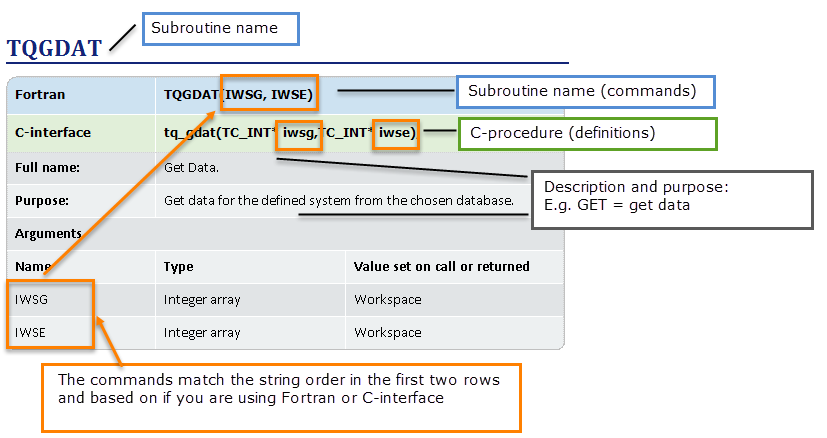TQGMOB
| Fortran |
TQGMOB(INDEXP, ISP, VAL, IWSG, IWSE) |
|
|---|---|---|
| C-interface |
tq_gmob(TC_INT indexp,TC_INT isp,TC_FLOAT* val,TC_INT* iwsg,TC_INT* iwse); |
|
|
Full name: |
Get Mobility |
|
|
Purpose: |
Getting mobility of a species in a phase with the temperature, pressure, and site fractions given by other subroutines shown. |
|
|
Comments: |
Remember this subroutine requires no action of setting condition and calculating equilibrium. It is for getting the atomic or species mobility in a single phase with given temperature, pressure and atomic arrangements no matter if the phase is stable, metastable, or unstable in competition with other phases. The application program should take care of the phase stability or phase equilibrium if it is of interest. The use of this subroutine is demonstrated in Example 9. |
|
|
Arguments |
||
|
Name |
Type |
Value set on call or returned |
|
INDEXP |
Integer |
Set to a phase index. |
|
ISP |
Integer |
Set to a system species index |
|
VAL |
Double precision |
Return species or atomic mobility value. |
|
IWSG |
Integer array |
Workspace |
|
IWSE |
Integer array |
Workspace |
Note the following conventions to distinguish between the programming languages.
- Routines starting with TQXXX, for example, TQGDAT, are in the Fortran interface
- Routines starting with tq_xxxx, for example tq_gdat, are in the C-interface.
- In Fortran, all routines are subroutines and do not return any values except where explicitly declared as functions.
- All the C procedures are declared as void and do not return any values except where explicitly otherwise declared.
An example of how to read the subroutine definitions.
